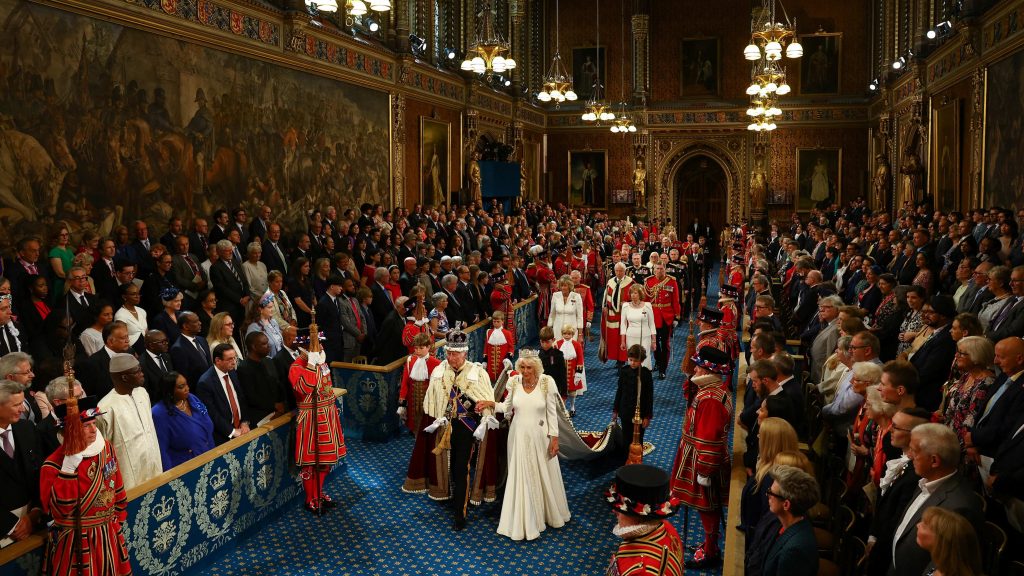
Britain’s King Charles set out Prime Minister Keir Starmer’s legislative agenda on Wednesday, promising a government of service focused on reviving the economy and tackling issues from an acute housing shortage to a cost of living crisis.
In a ceremony full of pageantry, before an audience of robed lords and lawmakers, Charles read out the laws the government is prioritising after Starmer’s centre-left Labour Party won a large majority at this month’s election.
The package of more than 35 bills will focus on growing the economy, reforming planning laws to make it easier to build homes and speeding up the delivery of major infrastructure projects, improving transport and creating jobs.
The king’s speech, written by the government, also tried to set a new tone to British politics, promoting service rather than self interest, something that Labour says took root over 14 years of often chaotic Conservative Party rule.
“My government will govern in service to the country,” said Charles, wearing a crimson and white robe and the Imperial State crown.
“My government’s legislative programme will be mission-led and based on the principles of security, fairness and opportunity for all.”
Starmer won one of the largest parliamentary majorities in modern British history on July 4, making him the most powerful national leader since former prime minister Tony Blair.
But he faces a number of daunting challenges, including improving struggling public services with little room for more spending.
In an introduction to the proposed legislation, Starmer announced “the era of politics as performance and self-interest above service is over”.
But he also had a warning for voters who might hope the new Labour government can quickly fix the problems buffeting Britain. “Rebuilding our country will not happen overnight. The challenges we face require determined, patient work and serious solutions,” he wrote.
“We will unlock growth and take the brakes off Britain, turning the page for good on the economic irresponsibility and pervasive inability to face the future that we saw under the Conservative government.”
HOUSING, INFRASTRUCTURE
The government announced legislation to “speed up and streamline the planning process” to help address Britain’s acute housing shortage and the long delays that dog infrastructure projects.
With the Planning and Infrastructure Bill, the government signalled it would restrict the ability of local people to block new developments, saying there would be “democratic engagement with how, not if, homes and infrastructure are built”.
The government also set out plans to gradually renationalise the passenger rail network and set affordable fares to draw people back on to trains by handing the state control of rail contracts held by private companies, once they have expired.
This decision would mostly reverse the privatisation of the railways conducted in the 1990s by the then-Conservative government.
The speech also made clear the government’s drive to reset relations with the European Union after years of Brexit rancour, with the king saying his ministers “will seek a new security pact to strengthen cooperation”.
It is a goal Starmer can work towards when he hosts a meeting of the European Political Community, a group of more than 40 states formed in 2022 after Russia’s full-scale invasion of Ukraine.
Following on from meetings at a NATO summit in Washington last week, Starmer and his team hope to press on with those conversations, although any talks on a security pact would most likely come later in the year.
(Reporting by Andrew MacAskill, Elizabeth Piper and Alistair Smout, additional reporting by Sarah Young, James Davey, Muvija M and Kate Holton; Editing by Janet Lawrence)